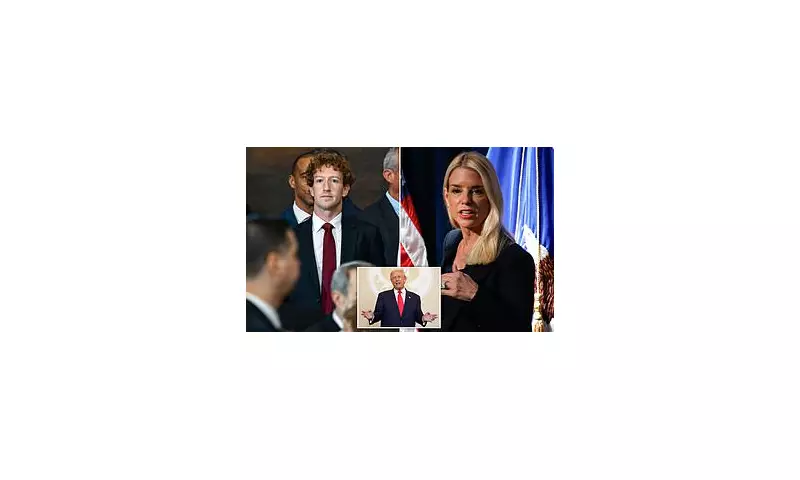
Meta CEO Mark Zuckerberg finds himself at the centre of a legal maelstrom as explosive internal communications surface in a major antitrust lawsuit, painting a picture of a deliberate strategy to neutralise potential competitors through acquisition or annihilation.
The 'Crush or Acquire' Doctrine Exposed
Recently unsealed court documents reveal a pattern of behaviour that regulators argue demonstrates Meta's systematic approach to maintaining market dominance. Internal emails show Zuckerberg personally endorsing the concept that emerging social media platforms posed an 'existential threat' to Facebook's supremacy.
One particularly damning communication from 2012 outlines Zuckerberg's perspective: "It is better to buy than compete" when facing promising startups. This philosophy, prosecutors allege, became the cornerstone of Meta's growth strategy for over a decade.
Pam Bondi's Surprising Alliance
Adding political intrigue to the legal drama, former Florida Attorney General Pam Bondi - once a prominent defender of Donald Trump - has joined the coalition of state attorneys general pursuing the case. Her involvement signals the bipartisan nature of concerns about Big Tech's expanding influence.
Bondi's legal filing pulls no punches, stating: "Meta's anti-competitive conduct has harmed consumers, advertisers, and the entire digital ecosystem." Her participation underscores how tech regulation has become one of the rare issues uniting politicians across the ideological spectrum.
The Instagram and WhatsApp Acquisitions Under Microscope
At the heart of the lawsuit are Meta's landmark acquisitions of Instagram in 2012 for $1 billion and WhatsApp in 2014 for $19 billion. Regulators now argue these weren't innocent business expansions but strategic moves to eliminate nascent competition.
- Internal discussions reveal Facebook viewed Instagram's rising popularity as a direct threat to their photo-sharing dominance
- WhatsApp's encrypted messaging platform was seen as potentially disruptive to Facebook's data collection model
- Evidence suggests Zuckerberg personally intervened to ensure these companies didn't fall into competitors' hands
The Legal Battle Heats Up
With the unsealing of these internal documents, the antitrust case against Meta has gained significant momentum. Legal experts suggest the emails provide the 'smoking gun' prosecutors need to prove intentional anti-competitive behaviour rather than legitimate business growth.
The case represents one of the most serious legal challenges Meta has faced in its history, potentially forcing the tech behemoth to divest valuable assets and fundamentally restructure its business practices.
As the legal proceedings continue, all eyes remain on Zuckerberg and how he will navigate what could become a defining moment for both his company and the broader tech industry's approach to competition and innovation.





